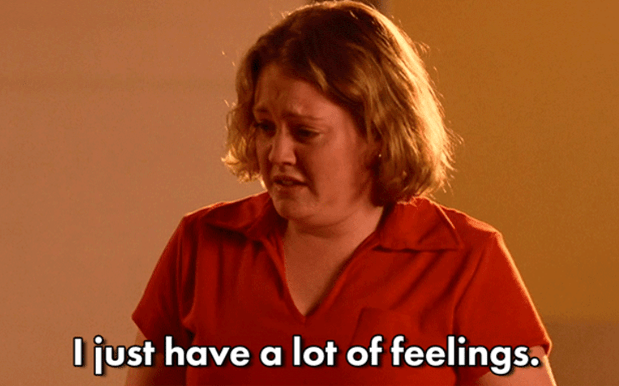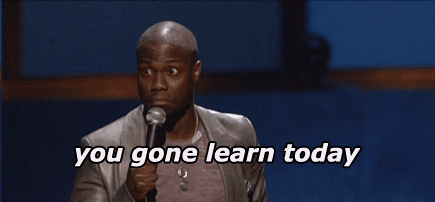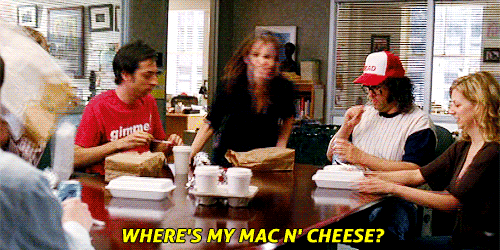
PEDESTRIAN.TV has partnered with Flight Centre to get your damn-fine self to Europe as soon as humanly possible. Why? Because there’s nothing worse than NOT summering O/S when all your mates are. Don’t be the potato who’s forced to live vicariously through the Instagram feeds of others – book with Flight Centre HERE.
FOMO
Noun, informal
“Anxiety that an exciting or interesting event may currently be happening elsewhere, often aroused by posts seen on social media.”
E.g: ‘I realised I was a lifelong sufferer of FOMO.’
Yes, we’re aware how redundant it is to present Fear Of Missing Out‘s definition to you – you’re a human that’s alive in 2017 after all. You’ve had it strike in July when all of your mates are having a fab time in Europe. You’ve cracked a hefty sweat after reviewing of all of their Snaps. You’ve even thought of just going “fuck it”, pausing whatever Netflix series you’re watching, purchasing a heavily inflated plane ticket and heading over to join ’em.
While FOMO affects everyone from your Nan, to your annoying “turn that flaming music down” neighbour Rod, we’re guessing y’all haven’t given much thought to what’s happening on a psychological level when you experience it. Neither had we, tbh. So let’s get the 411 on what’s churning through our noggin when FOMO kicks you right in the money maker.

To begin with, it’s suggested that the psychological building blocks of FOMO are rooted in two theories which we’re going to have a crack at breaking down in layman’s terms (can we get an amen that psychological jargon is COOKED, pls?).
Loss Aversion
Amos Tversky (cognitive and mathematical psychologist) and Daniel Kahneman (2002 Nobel Memorial Prize in Economic Sciences winning psychologist) were the first folks able to demonstrate how much us humans fkn HATE losing something.
It implies, for example, that someone who loses $50 will lose more satisfaction than another person would gain in satisfaction from finding $50 – or in other words, losing something is twice as impactful on someone than gaining something. That’s why you feel so terrible in the aforementioned example of your mates being O/S.
Risk Aversion
The next psychological step we take is risk aversion, which is prompted by loss aversion. Because we hate loss so much, we view putting ourselves in a situation where we could lose something as hella risky business.
This means a lot of us are more likely to choose a locked-in outcome over a risky one. Choosing a low-interest savings account to tuck $1000 in, for example, is usually preferred / deemed the correct choice over investing in high-risk stocks – even if the return on those stocks is massive.
So why do loss / risk aversion play a role in the psychology of FOMO? It boils down to choice. Yes folks, here’s the weird thing: even though we’re physically not there, and may even not have the means to be there, we consider missing out on something as losing out on something.

As in, we no joke felt like we’ve lost something, even though we weren’t there to lose out to begin with. Christ we’re weird.
Barry Schwartz, author of The Paradox of Choice: Why More Is Less, looked at this loss-but-not-loss conditioning by conducting a study of people buying new wheels.
Round #1: The customers saw the car they were chasing with all the bells and whistles attached. When they realised the cost of the car was too much with all the extras, the dealer cut off some of the options in an effort to reduce the overall cost of the car.
Round #2: The customers were given the cost of the car at its cheapest. The dealer than offered them add-ons and increased the price in increments as the customer chose what they wanted.
The result: people spent more moola and were way less satisfied in round #1. Why? Psychologically speaking, people were devo that they had to give up what they felt they already had – in this instance, the car’s add-ons. Because they didn’t want to miss out, they ended up spending more than those in the second round.

Lastly, and further to Schwartz’s concept of the paradox of choice, the sheer amount of choice we have in the modern age triggers the psychology of FOMO. Seeing as we have so many choices available to us (regardless of whether those things are realistically attainable or not), we no joke receive less happiness from the actual choices we make.
All those things coupled together, good people of the internet, is why you’re so afraid of missing out.
At the end of the day though, elements of FOMO are suggested to be based in evolutionary growth. Organisms whose life depends a lot on, y’know, eating – and who need to constantly feed on limited supplies – would see losing food for a day as a really crappy thing. Fair enough. As would we all.
The flip side of gaining extra food though could lead to extra comfort, but unless it could be stored without a cost attached to it, it wouldn’t lead to increasing an organism’s likelihood of surviving. It’s suggested that this survival instinct is why we’re more disheartened by losing something than we are happy when gaining something.

Sure, a lot of FOMO is crap and potentially harmful to your overall wellbeing, but if you’re able to keep it in check, it’s a great way to gauge what you truly desire. Don’t just throw caution to the wind to go to some crappy party that you know will be a waste of time because FOMO’s striking. But, when it touches on your desire to have new and authentic experiences, it might not be the worst thing to listen to it.
If you’re not game on going through the FOMO you had last year helplessly viewing the deluge of posts on Facebook and Insta’ of everyone in Europe, then don’t. Like, obviously don’t just go because everyone’s going – go because you want to have a new experience and make new memories. If your intentions are sound then the crew at Flight Centre + their partner tour groups Topdeck and Contiki can help get you over there. Just head HERE to suss your options.
Photo: Mean Girls.



